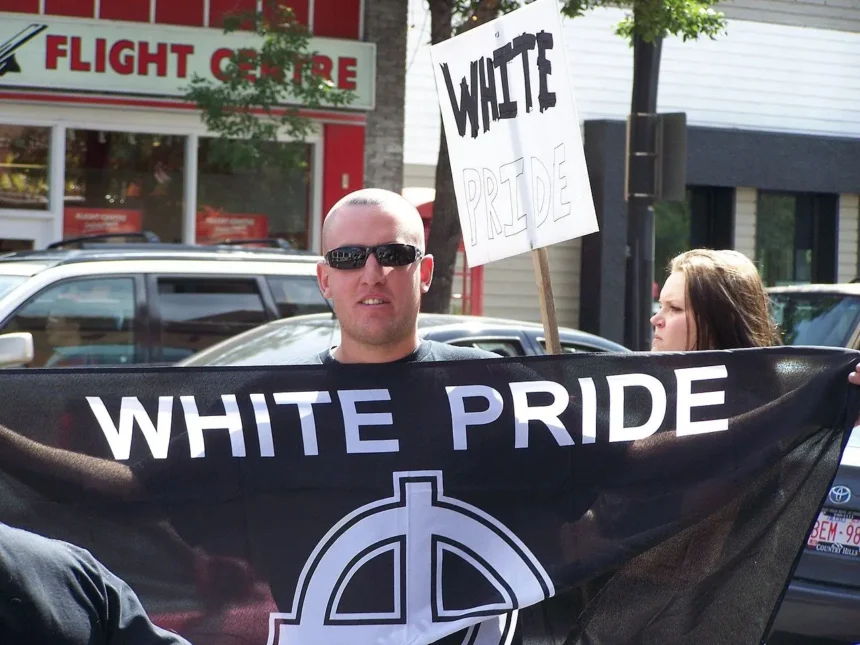The landscape of Canadian right-wing extremism is complex and continuously evolving, posing a growing concern for the nation. This phenomenon is deeply rooted in exclusive forms of nationalism that rely on divisive criteria such as race, ethnicity, and sexuality. Extremist groups perceive the Canadian state with suspicion, considering it an illegitimate authority that does not represent their vision of the nation. Consequently, they adopt a dual approach, employing both defensive and offensive strategies to protect what they perceive as their cultural heritage and homeland.
Central to this issue is the extremist groups’ rigid conception of a “normal” collective identity. This narrow definition of what it means to be Canadian leads them to exclude and suppress anyone who deviates from their prescribed norms. The consequence of this exclusion extends beyond social ostracization; it can escalate into acts of violence and hate, posing a significant threat to Canada’s social cohesion and national security.
Canadian extremist groups deem the state as untrustworthy and lacking legitimacy.
Understanding the intricate nuances of right-wing extremism is paramount for addressing this growing concern effectively. It is not a monolithic phenomenon but rather a complex interplay of ideologies, grievances, and perceptions. To counteract its adverse impact, policymakers, researchers, and communities must work together to unravel these complexities and develop strategies that promote inclusivity, tolerance, and social harmony.
Ideological Motivations Behind Canadian Right-Wing Extremism
The motivations driving right-wing extremism in Canada are multifaceted, stemming from a variety of ideologies that fuel these extremist groups. While each faction may have distinct beliefs, they share common threads of rejection towards certain collectives, often targeting immigrants, Muslims, and feminists.
White supremacists make up a large part of the extremist spectrum. They believe the white race is naturally superior to non-whites. They often show contempt for non-white groups, seeing them as dangers to their racial purity. Historical biases shape this strong prejudice. Current socio-political events often reinforce it.
Another faction within right-wing extremism comprises neo-Nazis. They are characterized by their racial hatred and anti-Semitic views. They often glorify Nazi ideologies and symbols. Their beliefs extend beyond racial prejudice, encompassing anti-state sentiments and opposition to perceived globalist agendas.
Militia groups represent a unique aspect of right-wing extremism. They often see themselves as the nation’s true defenders and claim the current government is corrupt or ineffective. They act to safeguard their view of the Canadian homeland, thinking it faces threats from various forces both inside and outside.
Despite their differences, these extremist groups unite over certain rejections. They often target immigrants, seeing them as threats to national identity. Global events and misunderstandings amplify their prejudices against Muslims. They also view feminists, who push for gender equality, as dangers to the societal norms they value.
The Norms and Practices of Canadian Right-Wing Extremism
In addition to understanding the ideologies that underpin right-wing extremism in Canada, it is essential to delve into the norms and practices that these extremist groups seek to impose. At the core of their worldview lies a rigid perception of a “normal” collective identity, a standard they vehemently uphold.
This perceived norm is far from inclusive. Instead, it is rooted in exclusive criteria, often centering on race, ethnicity, and sexuality. Such a narrow definition of identity inherently results in the exclusion of individuals who do not fit within these parameters. The consequences of this exclusion extend beyond social ostracization and can escalate to active repression and violence.
It’s vital to strengthen laws and policies that address hate speech and violence.
These extremist groups deem the state as untrustworthy and lacking legitimacy.This perspective arises from the belief that the state inadequately represents or safeguards their vision of a “normal” Canadian identity. Consequently, these groups adopt both defensive and offensive postures. On the defensive front, they aim to protect what they perceive as their cultural heritage and homeland from perceived external threats. On the offensive front, they seek to challenge and undermine the authority of the state, often resorting to acts of violence or civil disobedience.
One of the significant dangers associated with this perception of “normalcy” is the cultivation of an “us versus them” mentality. Those who do not conform to their narrow definition of identity are not merely regarded as different; they are viewed as imminent threats. This mindset serves as a justification for their acts of exclusion and repression, perpetuating a self-reinforcing cycle of animosity and division.
Strategies for Combating Right-Wing Extremism in Canada
The landscape of right-wing extremism in Canada, marked by exclusive nationalism and a skewed perception of collective identity, demands a multifaceted response. To effectively tackle this challenge, understanding the underlying motivations and ideologies driving these groups is essential.
Firstly, promoting education and awareness about diversity and inclusion is paramount. By doing so, one can challenge and dismantle the misconceptions these groups hold about certain collectives, such as immigrants, Muslims, and feminists. Education can act as an antidote against ignorance and prejudice, providing individuals with a broader and nuanced understanding of different cultures and communities.
Furthermore, it’s vital to strengthen laws and policies that address hate speech and violence. This will deter these groups from acting on their extremist beliefs and protect vulnerable communities from potential targeting.
Collaboration between law enforcement agencies and communities is another crucial aspect. By working together, they can identify early signs of radicalization and devise strategies to intervene before a violent act occurs.
Lastly, it’s essential to provide resources and support for those seeking to leave these extremist groups. By offering an exit and an opportunity for reintegration, the allure of these extreme ideologies can be diminished, aiding those ensnared in their web to find a path towards a more positive and constructive life.









